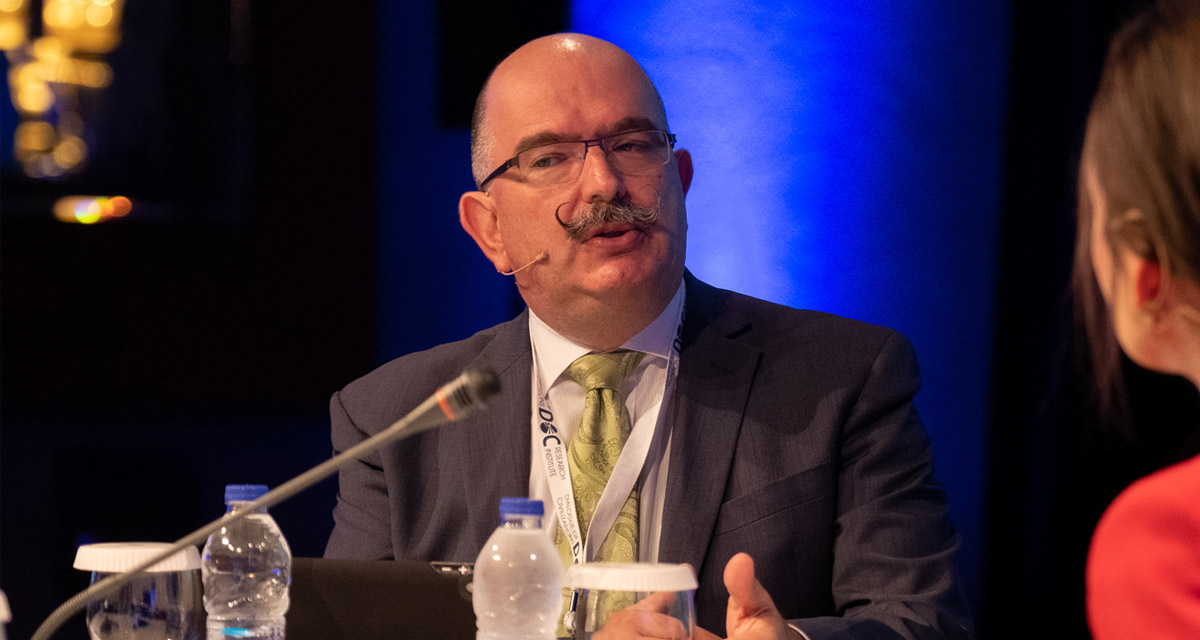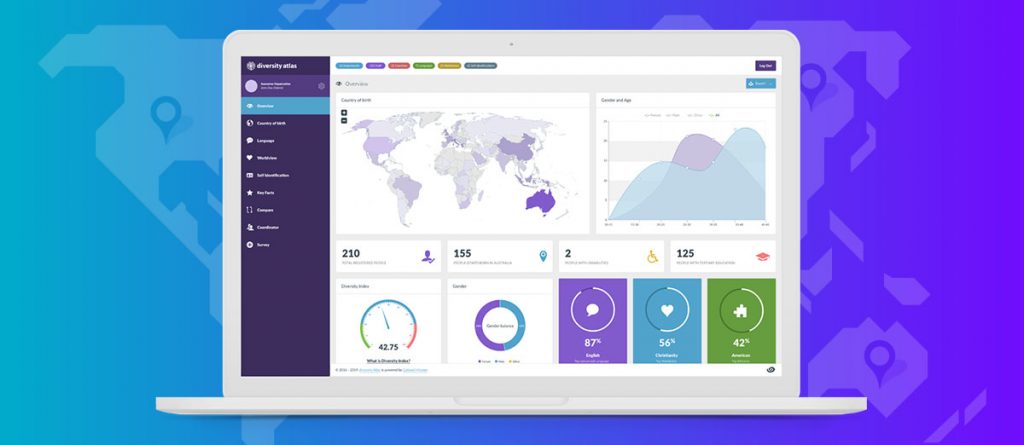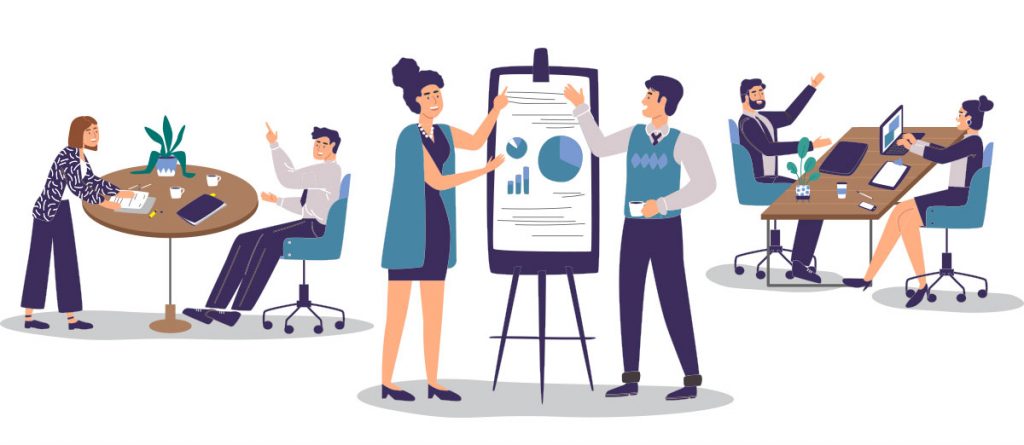
The following is an interview with Cultural Infusion CEO Peter Mousaferiadis written by David Braue for Information Age, the official publication of the Australian Computer Society (ACS), as part of their series on Diversity & Inclusion Champions. The interview was originally published on 29 January 2019 on the Information Age website and can be found here.
Disclaimer: At the time of original publication, Diversity Atlas was known by the now-obsolete name Ancestry Atlas; all mentions of the phrase ‘Ancestry Atlas’ have been updated accordingly to reflect the name change.
For a country home to people from as many cultures as Australia, conversations about diversity in the workforce should theoretically be short and easy.
Yet many businesses are still struggling to build workforces with a diversity of cultural and intellectual heritages – and Peter Mousaferiadis believes he knows why.
Businesses just don’t know their employees as well as they should, he explains: particularly in large companies, employees may appear to human resources managers as nothing more than a record filled with descriptive and demographic facts.
This lack of visibility of diversity, says Mousaferiadis – founder and CEO of Melbourne organisation Cultural infusion – obscures the cultural diversity amongst the workforce, making it hard for companies to plan workforce strategies that recognise the diversity within their employees.
“We know diversity gives organisations a competitive edge,” he explains, “but how do you measure diversity? And how can companies make sure they have a workforce that reflects the demographics of the areas they want to go into?”
Poor understanding of employees’ cultural backgrounds also impedes their ability to build corporate initiatives that capitalise upon that diversity to better target potential customers and build new products and services.
Such issues speak directly to corporate productivity, particularly since employees have long understood that diversity is a desirable trait within contemporary businesses.
In an employee survey by recruitment firm Hays IT, for example, 58 percent of respondents said they would like to see greater diversity in their workplace.
Sixty-eight percent of respondents said their organisations are taking steps to create a gender-diverse workforce, while 57 percent said their organisation values mature-age workers and 66 percent of employers said they were committed to recruiting a multi-cultural workforce.
How to measure diversity
Despite best intentions, companies have often struggled to measure the diversity of their workforce in great detail.
Mousaferiadis – a 30-year creative director, producer, music director, and symphonic conductor whose resume includes the production of Australia Day concerts from 2004 to 2012 – has been working to change this with Cultural Infusion’s new Diversity Atlas workforce analysis tool.

Diversity Atlas enables employers to use an online survey to quickly survey traits of their employees that may not otherwise be apparent from an HR record.
Questions asked relate to cultural diversity including country of birth going back three generations, world views, languages spoken, as well as demographic diversity such as their education level, disability, gender, age and self-identification.
Diversity Atlas incorporates a database of 7,800 languages and 650 religions and worldviews that, Mousaferiadis says, helps employers better understand the cultural values and competencies of the people that work for them – and to pinpoint business opportunities as well as potential sources of cultural conflict that could impact efficiency and performance down the track.
“Culture plays an important role in shaping the way we all interact with and derive meaning from the world around us, said Mousaferiadis.
“It’s all about recognising that we all come from different backgrounds, and that values aren’t universal,” he says.
“Many people may not subscribe to a particular religion, for example, but they are probably still culturally religious.
“Diversity Atlas provides a way to capture those nuances and recognises the role that culture in its various facets plays in defining us at the end of the day.”
The tool has been tested at more than 20 organisations and events, and can evaluate diversity within teams or at the organisational level.
The application has been authored using the Laravel PHP framework, with the sensitive data encrypted and stored locally within the organisation.
Early tests have produced a range of insights, including the interesting fact that the surveyed females spoke more languages than the males.
Employees have been happy to participate in the workforce surveys, which are delivered online and completed using anonymous links that are emailed to each employee.
Collecting this information would previously have required a massive logistical effort spanning many weeks’ worth of work – but running the surveys online can produce organisational insights within minutes.

Improved visibility drives better accountability for diversity initiatives, helping organisations satisfy the six requirements outlined by Hays as crucial to building an inclusive organisation (the others include: building a people-oriented culture; voluntary representation targets; educating hiring managers about recruiting for diversity; employee networking and development programs; and cultural recognition).
The information gathered by Diversity Atlas provides invaluable insight for organisations to assist with strategic planning, marketing and building a client base, developing a culturally responsive and mutual workforce and a range of other uses.
“We need to make sure that we build a culturally responsive workforce,” Mousaferiadis says. “This provides a snapshot that you can use as a guide for strategic development.”
Part of the bigger picture
Since it was founded in 2003, Cultural Infusion has worked on a range of diversity initiatives including cultural events, workshops, training courses, consulting services and school services.
It has delivered programs and a range of services to more than 14 countries, including reaching more than 350,000 Australian students annually.
The firm’s growing digital presence – of which Ancestry Atlas is a flagship product – is helping to tie its activities to global diversity initiatives, and this year became an official partner of the Australian National Commission for UNESCO.
It was recently chosen to represent Australia for the UN World Summit Awards and in 2013 was a winner of the United Nations Alliance of Civilisation Intercultural Innovation Award.
Cultural Infusion has also been working to build and refine Joko’s World, an award-winning cultural diversity platform that includes mobile travel games targeted at young people as mobile apps.
By addressing diversity issues at many different levels, it is Mousaferiadis’ hope that the firm’s offerings will become a catalyst for more positive, effective diversity strategies within companies that will become better-informed about their workforces and customers.
“At the end of the day we are defined by culture,” he says. “Culture overarches and underpins every aspect of humanity.”
“History has told us again and again that diversity leads to innovation, and that knowledge is based on the diversification of ideas. But if diversity is not managed, it’s not going to work.”
Share this Post